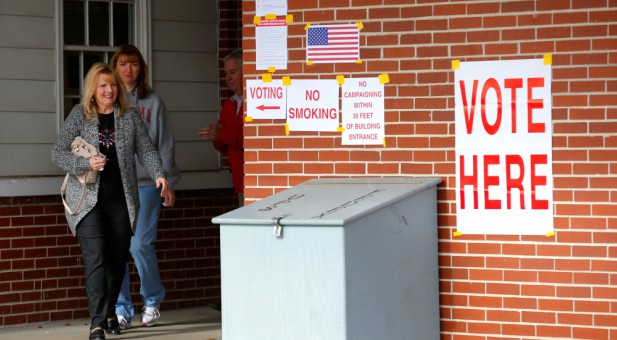Are the Republicans in Big Trouble in 2018?
Many media outlets described the defeat of Roy Moore in Alabama as a defeat of President Trump, as if the voters in rejecting Moore were rejecting Trump. And, with Trump’s approval ratings so low, does this predict a disastrous outcome for Republicans in 2018?
According to Chris Cilizza on CNN.com, based on his analysis of the exit polls, there are “8 numbers out of Alabama that should terrify Republicans.” These are: 1) Moore won only among old(er) voters; 2) Moms walked away from Moore; 3) Moderates fell for Jones; 4) Trump approval was blah; 5) Jones played Moore to a draw on values; 6) The Democratic Party is more popular than the Republican party; 7) Republicans are increasingly only a rural party; 8) Black voters are incredibly energized.
It’s certainly possible that Cilizza and others are right and that Republicans are in big trouble. And there’s no disputing that the president’s approval ratings continue to be very low. But it’s also possible that the unique circumstances surrounding Judge Moore were the biggest factor in Alabama and had another Republican candidate one (especially one was that was not so hotly opposed by his own party), that candidate would have won handily.
Also, looking at the exit polls for the Alabama senatorial race, it’s interesting to see that, while 51 percent of the voters said Trump was not a factor in their vote, 27 percent said their vote reflected support for Trump, whereas only 17 percent said their reflected opposition to Trump. If this is correct, then Trump gained more votes for Roy Moore than he lost to Doug Jones.
As for Trump’s overall approval-disapproval ratings, 89 percent of those who voted for Moore expressed approval while 93 percent of those who voted for Jones expressed disapproval. This is in keeping with what we could expect from partisan voters. And perhaps, had Trump been a strong supporter of Moore from the start, his approval rating would have been higher in the Moore-voter’s eyes.
But perhaps a question we should ask is this: If the presidential elections were held today with the same two candidates, Donald Trump and Hillary Clinton, or, if it was Trump vs. a Hillary Clinton type candidate, how would people vote? I decided to ask this question on Twitter on Facebook, using their respective polling options.
On Twitter, you can select four response options, whereas on Facebook, at present, you can select only two. So, on Twitter, I asked, “If the presidential elections were today and Trump was the Republican candidate and he was running against a Hillary Clinton-type Democrat, would you vote for Trump? (Please also signify if you voted for him in 2016; that’s why there are two options for yes and no.)”
The choices were: Y (voted for him in 2016); N (voted for him in 2016); Y (didn’t vote for him); N (didn’t vote for him).
Of the 422 followers who responded, 68 percent had voted for Trump in 2016 and 32 percent had not. Of the former, 95.5 percent said they would vote for him again and 4.5 percent said they would not. Of the latter, 66 percent said they would not vote for him now compared to 34 percent who said they would. So, overall, based on this Twitter response, Trump picked up substantially more voters than he lost.
On Facebook, because there were only two ways that people could respond, I posted two polls, one for those who voted for Trump in 2016 and one for those who did not. And since this was just a test, I didn’t do it on my AskDrBrown Facebook page, which has over 550,000 followers, but on my private page, which has the 5,000-friend limit.
Of the 277 who responded, they were almost equally divided between those who voted for Trump in 2016 (144) and those who did not (130). Breaking this down, 87 percent of those who voted for him said they would do so again today if he was running against a Hillary Clinton type candidate. Of those who did not vote for him, 80 percent said they now would. This was even more dramatic than my poll on Twitter in terms of Trump picking up far more voters than he lost.
Of course, this only reflects a tiny sampling of people (under 30,000 on Twitter and just the 5,000 on my personal Facebook page, and presumably, very conservative), but it does indicate that the overwhelming majority of those who voted for Trump would do so again while a substantial number of those who did not vote for him in 2016 would do so today under similar circumstances.
Could it be, then, that Trump’s negative approval ratings are not totally reflective of reality? Or is all this irrelevant, since it is not Trump who is running in 2018 but other candidates who will be running? Or should we not try to read too much out of the Alabama race due to the unique nature of Moore’s candidacy and the opposition he received from his own party?
Again, it is very possible that Republicans are in big trouble in 2018 and that there are many factors pointing in that direction. And it’s very possible that there will be a massive backlash against President Trump and his party at that time, certainly with the help of the perpetually anti-Trump mainstream media.
But things may not be so simple. We shall see.















































